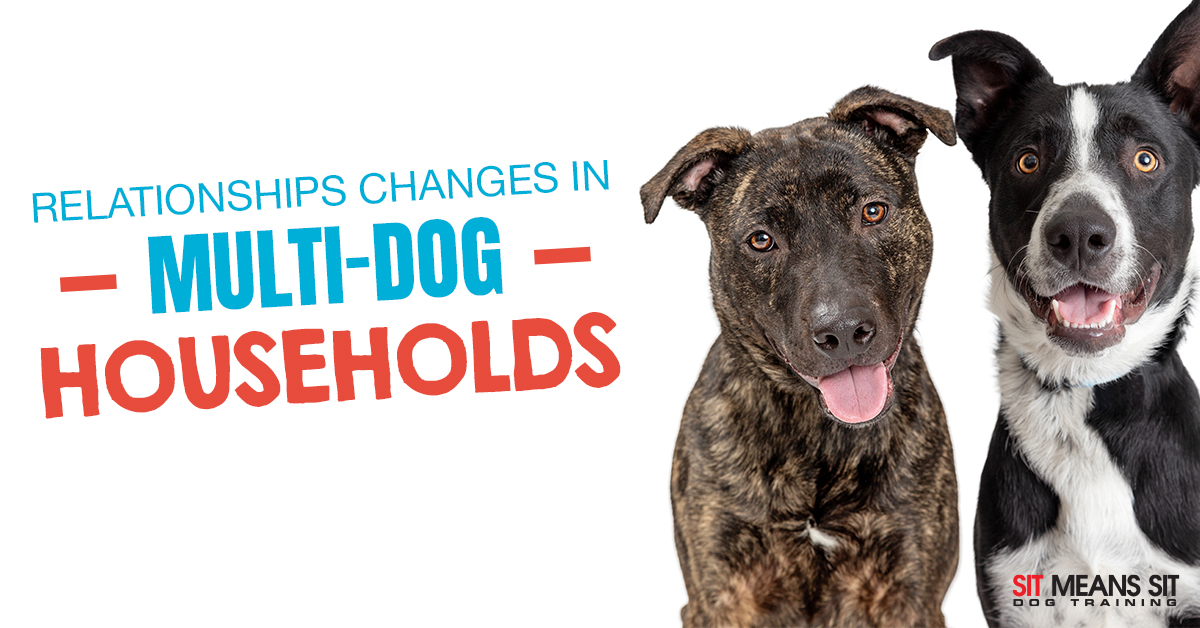
Relationship Changes in Multi-Dog Households
When introducing a new dog into a family with an existing dog, order is eventually established. The younger dog generally bows to the older dog. As your older dog ages and your younger dog matures, the dynamic generally change. What causes this switch? What other changes are going to happen? Let’s take a look into what you might see.
Age
Age is very important when it comes to social status within a family unit. In general, young-adult through middle-aged dogs tend to receive respect from other dogs. Older dogs age seven or older tend to be unable to command the respect they once did in their prime.
Just as our bodies experience pain and discomfort as we grow older, so do our dog’s. Whether it’s new health conditions, flare-ups of old injuries, or just general wear-and-tear, dogs who were once in charge may have to step aside for a dog now in his prime. Discomfort and pain can also lead to lack of sleep, thus irritability. As your older dog’s patience shifts so will your younger pup’s responses.
Another thing to consider is your older dog could begin to lose his sense of sight, hearing, and smell. This could lead to your dog missing signals from the young-in or even being surprised by him, causing confusion and anxiety for both parties. Two dogs that once got along perfectly might begin to have issues with one another.
Social Status
A younger dog who once was corrected into not taking things from the older dog (treats, food, toys, attention, etc) might realize that if he asserts himself he can start taking what he wants. This might seem disrespectful but it is just the natural canine social order.
As your dogs’ social statuses shift inside the house, it may change how your dog interacts outside the home as well. Whether it’s a long-standing relationship or an unfamiliar dog passing on the street, a dog in his prime will generally assert his dominance over the older one.
Changes inside the household and out can be confusing for your once king of the house. Shifts in relationships are usually not temporary and it may take some getting used to. It’s normal for a younger aging dog to stand up to an older aging dog and for the dynamic to switch. Things should start to settle down eventually as your dogs learn and accept their new roles. If you feel like your dogs might need some help learning their new roles, contact us for an evaluation!
